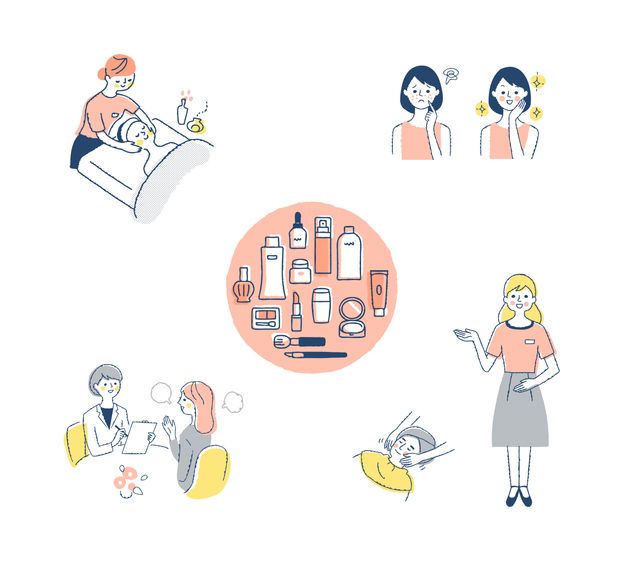

Book Now to Experience
F8 Hair Regrowth Treatment
1 Minute Self-Registration
Date should not be before minimal date
Author: Leila Tan|Updated: 23 July 2024
Hair loss, can be temporary or permanent and can affect just your scalp or the entirety of your body. It may be brought on by genes, hormonal changes, illnesses, or simply ageing. Consulting a doctor about your hair loss's cause and treatment options prior to beginning any regimen can be really helpful.

1
Understanding hair loss and its causes
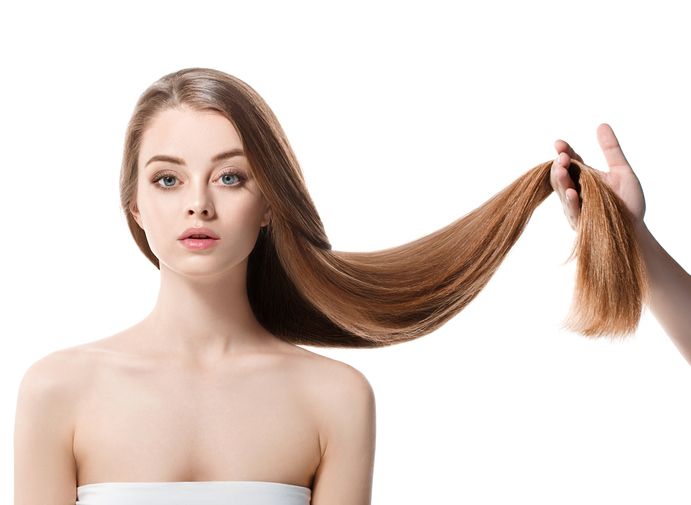
The Hair Growth Cycle
Scalp hair typically grows 6 inches a year on average. Humans, on the other hand, endure erratic growth and shedding cycles, in contrast to other mammals that have predictable cycles. The amount of hairs gained or lost varies as well.
Anagen
The "active phase" is another name for the anagen phase. Scalp hair expands quickly during this phase (approximately 1 cm per hair type month) and remains active for 2 to 6 years.
Catagen
The Catagen phase lies in between the "active" and "resting" phases. After the growth halts, club hair starts to develop. This stage lasts for two to three weeks.
Telogen
The hair follicle is fully dormant and there is no development during the telogen period. 50 to 150 hair strands a day are typical to fall out during this time. Generally speaking, the telogen period lasts three and a half months or so.
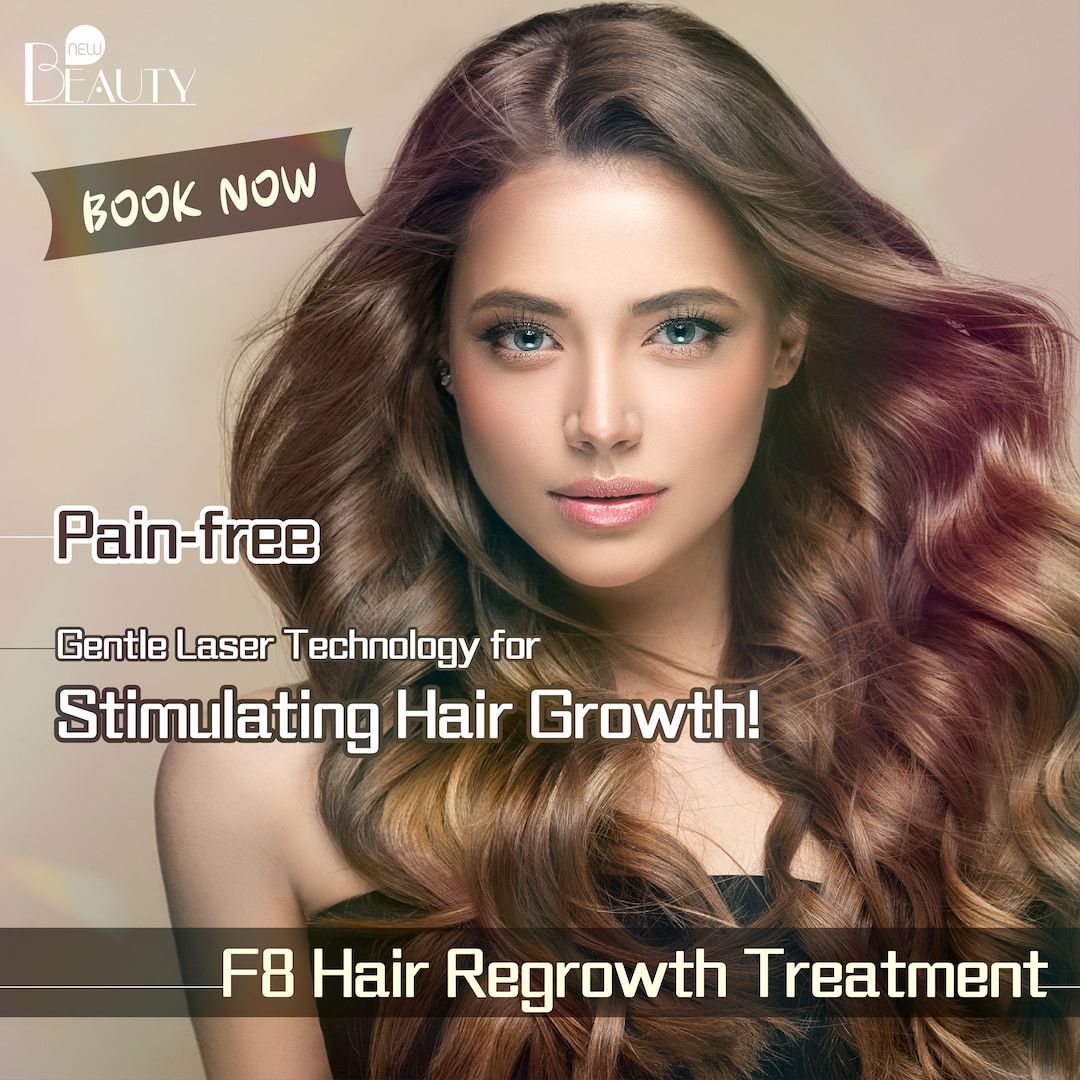

2
Hair Loss Factors
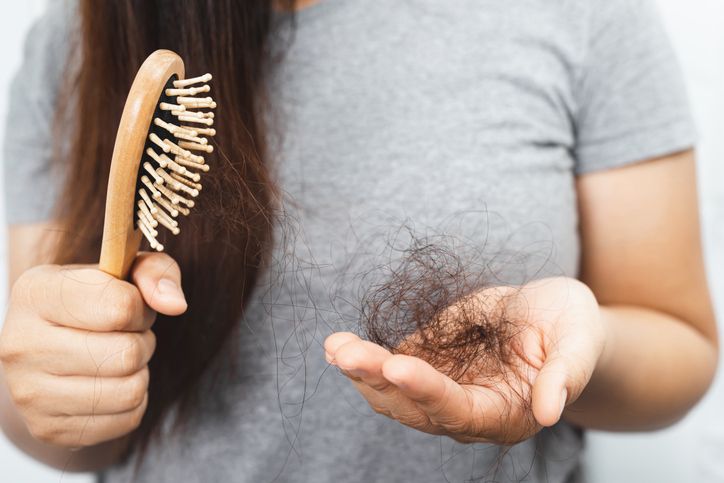
Telogen Effluvium
The natural growth of hair may be hampered by severe stress, and a large number of hairs may simultaneously reach the telogen phase. As a result, there may be excessive shedding, which may lead to bald spots. However, because the stress is adequately managed, this effect is just fleeting.
Hormonal Imbalance
Hormone levels that alter significantly can have a significant impact on hair. For instance, having thicker hair during pregnancy is typical as oestrogen levels rise during that time. However, as oestrogen levels fall during the postpartum period, more hair enters the catagen and telogen stages. However, it's common to lose hair during this period.
Medication
Some birth control pills, blood pressure medications, acne medications, and antidepressant medications have been documented to briefly reduce hair growth. Hair loss is a typical side effect of chemotherapy and radiation for cancer.
Genetics and Age
Hair loss is a genetic problem because affected family members are more likely to experience it themselves. The Rule of Decades can be used to forecast that as people age, they are also more likely to have hair loss. This rule states that 30% of men in their 30s will begin to lose their hair, and 40% of men in their 40s will already be losing their hair. Women are an exception to this trend; while 50% of women over 50 will have hair loss, only 30% of women under 50 will.
Read More

3
The role of nutrition in maintaining healthy hair
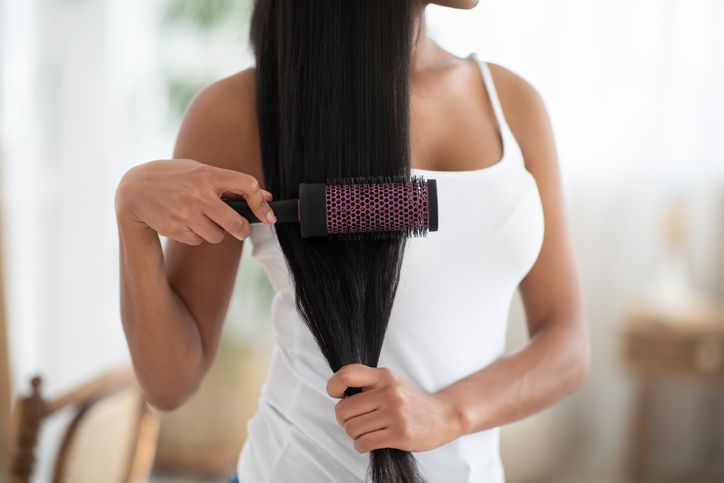
Protein
Keratin, a protein that has been stiffened, is what gives your hair its structure. Your body produces less of this crucial building block when your protein reserves are low, which results in slower and weaker hair growth. You should include lean meats like chicken and turkey as well as fish like tuna, halibut, and tilapia in your diet. Tofu, quinoa, and low-fat mozzarella and cottage cheese are also excellent choices to take into account for strengthening hair growth.
Biotin
Biotin, a vitamin that has been demonstrated to encourage hair growth, is found in abundance in lentils. Biotin aids in the production of amino acids, which are the building blocks for the previously stated crucial proteins, when it interacts with cell enzymes. Even hair loss has been linked to low biotin levels, according to research. Other wise options to think about are cauliflower, almonds, walnuts, and carrots. Ask your doctor for a recommendation if you're considering taking a supplement.
Iron
Iron in your red blood cells provides nourishing oxygen to your hair follicles. Even though the amount of iron in your blood may be regarded as normal, you still have a possibility of having low ferritin, the "bank" of iron that your body stores to use when necessary. Low ferritin has been associated with shedding and delayed or stopped hair development. Eat foods high in iron including oysters, clams, lean meat, eggs, tuna, soybeans, spinach, tofu, and garbanzo beans to try to prevent this. Before selecting a supplement, make sure to have your ferritin levels checked.
Omega-3 Fatty Acids
The cell membranes of your scalp's skin and the natural oils your hair and scalp secrete to stay hydrated both include omega-3s. Getting enough of these vital fatty acids can promote healthy hair growth and avoid dry scalp. A good amount of omega-3s can be obtained by eating wild salmon and other fatty fish twice a week, such as striped sea bass or mackerel.
Vitamin C
Red blood cells, which deliver oxygen and nutrients to every cell in the body, including those in the scalp and hair follicles, are produced with the support of the vitamins B6, B12, and folate. The cells may starve if you don't receive enough B vitamins, which will make your hair more prone to shedding, slower growth, and breakage. Pork tenderloin is a great source of these vitamins, but you can also get plenty of them from beans, chicken, muesli and low-fat dairy dishes if you don't consume pork.
B6, B12 Vitamins
Red blood cells, which deliver oxygen and nutrients to every cell in the body, including those in the scalp and hair follicles, are produced with the support of the vitamins B6, B12, and folate. The cells may starve if you don't receive enough B vitamins, which will make your hair more prone to shedding, slower growth, and breakage. Pork tenderloin is a great source of these vitamins, but you can also get plenty of them from beans, chicken, muesli and low-fat dairy dishes if you don't consume pork.


4
Best hair growth practices for preventing hair loss
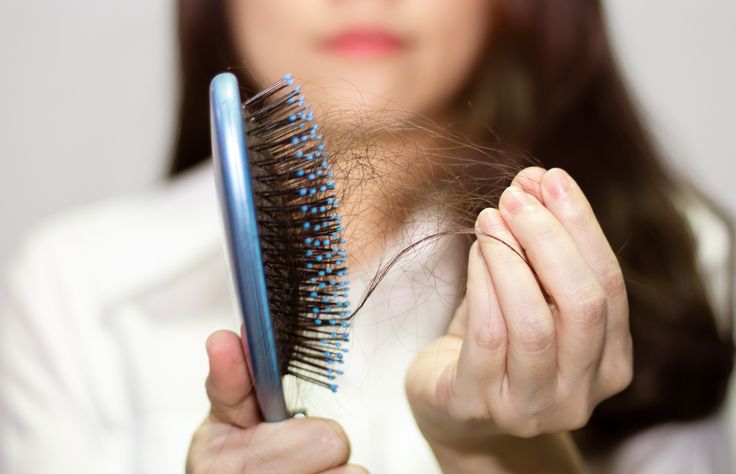
Make an appointment with board certified dermatologist
Hair loss can occur for a number of causes. The sooner you recognise the issue, the higher your chances are of getting the desired outcomes. A doctor having particular training in the diagnosis of conditions affecting the skin, hair, and nails is known as a dermatologist. They are able to locate the problem's root cause and, in many cases, successfully treat hair loss.
Do gentle washing and conditioning
Hair that is thinning or shedding is delicate and prone to harm. Some of the shampoos on this list have components that have been proven to help with minimising hair loss. Others give current hair a cosmetic boost by thickening or adding volume. Choose a shampoo with active ingredients to address the issue at hand if you're dealing with hair loss. Always keep the use of hair growth products limited as it can cause hair loss.
Stop relaxing, chemically straightening, perming, and colouring at home.
If you want to use hair products, find a salon that provides the service you want and has professionals that produce hair products and are educated to evaluate your scalp and hair to determine which product is ideal for you. Make sure the salon follows up with a moisturising conditioner.
Stop wearing your hair in cornrows, buns, ponytails, bunches or other tightly pulled-back styles.
Traction alopecia is a kind of hair loss that can be brought on by frequently wearing a hairstyle that pulls on your hair. Anything that tugs on your hair over time may result in permanent hair loss. You can make styling adjustments to stop this kind of hair loss.

Book Now to Experience
F8 Hair Regrowth Treatment
1 Minute Self-Registration
Date should not be before minimal date

5
The benefits of scalp massage to boost hair growth
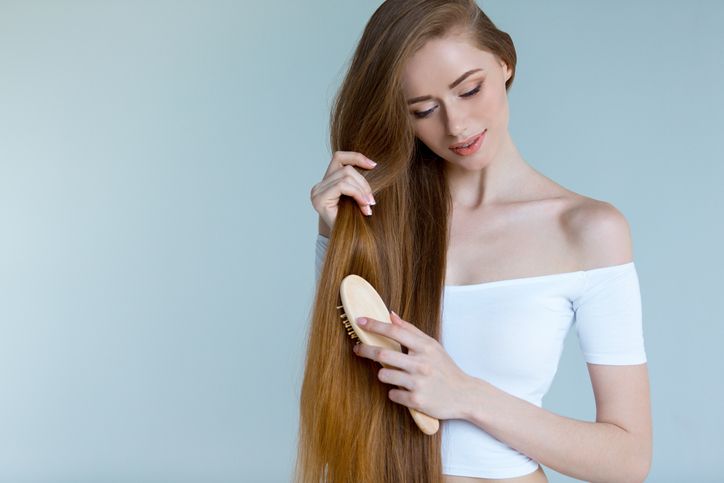
Men without hair loss who participated in a minor trial had their scalps massaged daily for 24 weeks for 4 minutes. At the conclusion of the study, hair growth had not significantly improved. However, participants had thicker hair. According to the experts, massage encourages blood flow to the scalp, which results in fuller strands. Their research also demonstrates that human dermal papilla cells, which are involved in hair growth and may be directly stimulated and stretched, may promote the formation of healthier hair.
These conclusions were supported by further study from 2019. Based on survey results from 340 volunteers who followed directions by massaging their scalp twice daily to reduce hair loss, this study was conducted. About 69 percent of participants said their alopecia had improved, according to the self-reported findings. So you may want to try scalp massage to promote hair growth.


6
Hair loss treatments - F8 Hair Regrowth Treatment
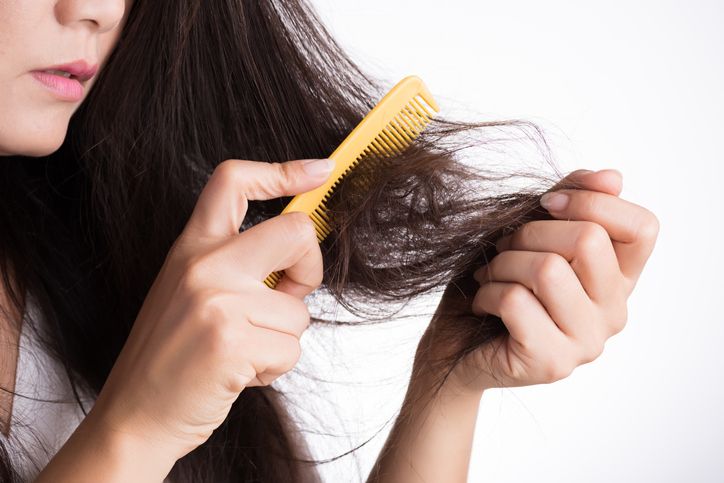
F8 is a non-invasive procedure that works excellent in promoting hair growth and health of the hair and scalp. A hair development serum with low laser energy sweeps across the scalp to activate dormant hair follicles and fortify the hair papilla. The healing of the capillaries and promotion of their microcirculation by the energy and serum also aids in supplying nutrients that energise the hair follicles. You will notice an improvement in hair volume and quality after the treatment.
How does this treatment work?
Step 1: The client's hair loss condition is investigated by a professional and hair health expert. The professional uses a 200-fold magnification to assess the health of the scalp and hair follicles. The specialist then verifies the client's hair loss degree and affected locations. The aesthetic therapist then goes into great detail about F8's idea and process. The low-energy laser will also be tested on a patch by the therapist.
Step 2: The therapist distributes low-energy lasers across the scalp using the device's handpiece. It's not surgery in this step. The hair papilla and hair follicles inside are stimulated. Additionally, the capillaries in the area get stronger, allowing for a proper microcirculation of nutrients. The end effect is a scalp and hair follicles that feel healthier.
Step 3: After the low-energy lasers are released, the therapist uniformly spreads the top hair growth serum over the scalp. Simple scalp serum absorption is made possible by laser radiation. The hair growth serum cleans the scalp, clears the pores, and moisturises the scalp, which reduces sebum production and creates a favourable environment for hair growth with a balanced water-oil ratio. The method promotes hair growth.
What can you get out of this treatment
Non-Invasive: F8 is a very safe, non-invasive method of treating hair loss. The scalp skin is evenly covered by the soft laser energy.
Increasing Blood Flow: A hair growth serum injection can deep-cleanse the scalp to lessen sebum production and can also unblock hair follicles for a healthy scalp.
Scalp Care: Hair papilla, capillaries, and hair follicles can all be strengthened by the F8 low-energy laser.
For Both Ladies and Gentlemen: For both women and men with hair and scalp issues, F8 is a very safe natural hair- and scalp treatment.

7
Hair restoration options for severe hair loss
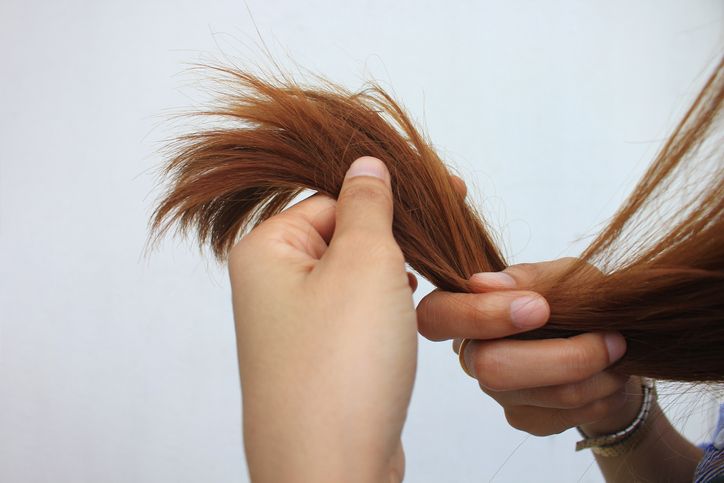
Hair Grafting or Hair Transplant
An outpatient hair replacement operation termed hair grafting, often known as a hair transplant, is carried out in the dermatologist's office. Micrografts only have one to two hairs per graft, slit grafts have four to ten, and punch grafts have between ten and fifteen. Mini-grafts, which have two to four hairs, and strip grafts, which are long, thin grafts with 30 to 40 hairs, are also options.
Scalp Reduction
In order to extend the remaining hair-bearing skin to cover the bald spot on the head, non-hair-bearing skin is removed from the scalp during a scalp reduction. A scale reduction procedure can cut the balding area in half. The frontal hairline does not benefit from the process, which is used to cover bald spots on the top and rear of the head.


8
Conclusion - maintaining healthy hair for life
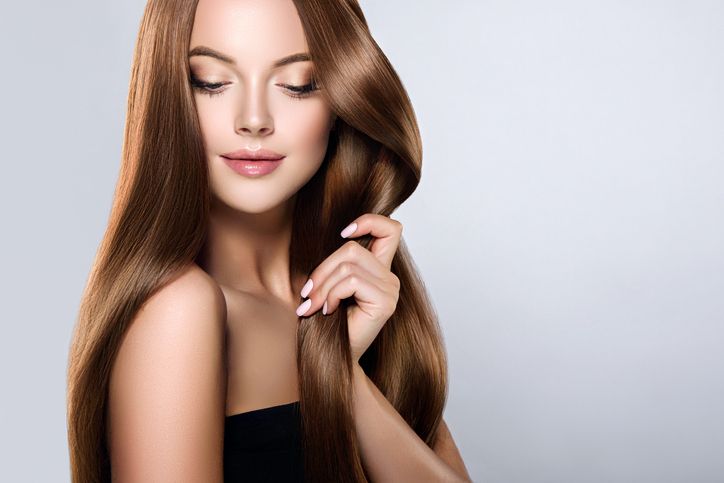
You might wish to try one of the many hair loss treatments available. These consist of over-the-counter and prescription drugs, hair implants, and natural therapies. If someone is concerned about their hair loss or if it has started suddenly, they should speak with a healthcare provider. To determine the reason for hair loss, a doctor may request a number of tests and conduct interviews.
FAQ
Is treatment for hair loss covered by insurance?
To find out if their plan covers hair loss treatments, one should contact their insurance company. Before receiving therapy, people should always check with their insurance.
What occurs if I stop taking my hair loss medication?
Your course of treatment will determine this. To maintain results, you must continue taking any OTC or prescription medicine, like Rogaine or Propecia, permanently.
How can I stop hair loss for good?
Hair implants are frequently long-lasting. However, based on your objectives, you might require many implants.
What kind of products can help with my hair thinning?
Go for products that provide a DHT blocking element that helps to strengthen the hair shaft which allows for a healthier and stronger hair fibre.

Book Now to Experience
F8 Hair Regrowth Treatment
1 Minute Self-Registration
Date should not be before minimal date
Recommended Articles
COPYRIGHT© NEW BEAUTY MANAGEMENT LIMITED 2025. ALL RIGHT RESERVED.


